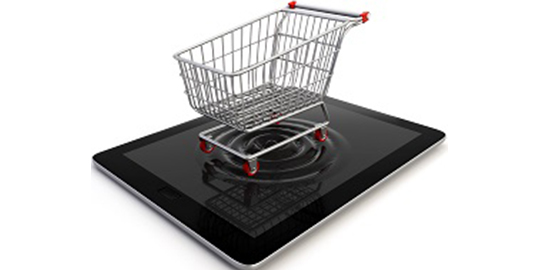
Strategic challenges for FMCG and Retail
Never have we lived such an exciting and tumultuous period as the current times are. The society's transformation, driven by digitalization and globalization, as well as geopolitical and economic forces, is completely transforming many industries and its clients' consumer habits.
One of these is the mass market and distribution industry. The distribution's brand, the crisis, new lifestyles, technology, Internet, etc., are obligating the entire industry to undergo transformation.
Indra Business Consulting has recently had the opportunity to design the strategic framework for the “Food and Beverage Industry” together with FIAB and the Ministry of Agriculture, Food and Environment, planning a roadmap of the challenges this sector will face up to 2020.
This has motivated us to carry out a study, extracting all of the knowledge obtained, using the talent of the consulting team of the Indra Business Consulting consumer division, to complete a thorough quantitative and qualitative analysis of the industry's main actors and of a representative sample of its consumers.
The essence of this study has been presented in this document, created as a practical guide for addressing the challenges that result of consumer trends which are already a reality in Spanish society. If we assess this study from a pragmatic viewpoint, we realize how far behind the industry still is in addressing the described challenges. Though it is true that many companies have already embarked on this path toward transversal innovation, most of them have not even started. In addition, contrary to what many analysts conclude, this is due to a problem of size and not capacity.
The main challenges companies must face up to in the future if they wish to grow sustainably and profitably:
The Marketing Challenge. The goals of marketing remain unchanged, but not the way in which these are reached. It is of vital importance to understand that the customer journey and the new ways and opportunities for connecting with the consumer are very different. Companies must make consumers understand the importance of brands and know how to connect with them, using all available channels.
Promote and look after new channels. Our obligation is not to "be" present in all of the different channels, rather to develop, incentivize and differentiate them to really achieve incremental sales for our companies.
Multichannel Sales Equality. Companies have been working in recent years to understand the sales equality of prices, promotions and discounts offered to their clients. The value chain has become destructured and this requires an exhaustive analysis of the contribution made by each link of the chain. It is necessary to develop a concept of “multichannel sales equality” so a consumer will not perceive incoherence in the price paid for a product depending on the purchase channel or area.
Global. The mass-market sector has sustained itself thanks to exports. If a Spanish company truly aspires to grow, all CEOs or business owners of any company must undergo “smart” internationalization. Internationalization is not just exporting. We must understand how consumers behave in the country of origin and what their preferences are to adapt our products, labels, formats, etc. to their demands.
Organizational Model. Another major challenge of this period is the development of organizational models from several perspectives:
- The organization chart itself. Distinguishing between the actual business and the future business.
- Including younger employees in our organizations will help us better understand the consumer and “impel” the organization in all of its areas.
- Get everyone accustomed to multinational environments and less hierarchical, more matrix-like organization charts with common, shared goals.
Innovation. Innovation ratios have been truly poor in recent years. Despite all of the difficulties, innovation must be a key strategy for any company, we must invest in truly innovative products that entail added value for categories and, especially, for consumers. The perception of innovation should not only focus on the product or format, we must also think about transversal innovation.
Efficient management of Prices and Promotions. In markets with stunted growth, optimizing the positioning of prices and promotions by aligning these with their incremental value and with the strategic role you want your brands to play in the market is the main source for increasing the EBIT that may result.
Generate Value. The mission of any company of the mass market in Spain is to increase the consumption of food and beverages to thereby enlarge the market. Before competing, we must together generate value for the sector/consumer to make the pie bigger.
No doubt, we will experience more changes in the coming decades than in the entire last century, which will result in radical changes for the industry's leading players. The actual ranking of TOP companies in the sector will be nothing like the ranking of winners in the sector in the coming decades. Both new players, digital companies, as well as those that are capable of undergoing transformation, will assume positions in the new leadership of the FMCG and Retail industry in Spain. As an example of this, we merely need to analyze the changes to the ranking of Fortune in the USA over the last century.
In any case, I am optimist and firmly believe that we have a sufficiently consolidated and prepared business fabric for facing up to this transformation and lead the sector in its reconversion on an international level.
Posted in angelbonet.com